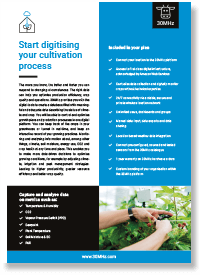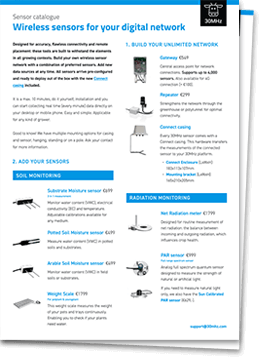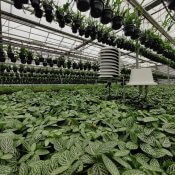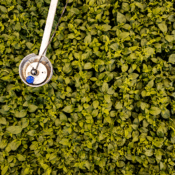Advancing UN Sustainable Development Goals with Digital Agriculture
Digital agriculture — digital and geospatial technologies to monitor, assess and manage soil, climatic and genetic resources — illustrates how to meet sustainability challenges within the agricultural industry. It can help balance the economic, environmental and social dimensions of sustainable food and plant production. Digital agriculture therefore has the potential to advance many of the UN Sustainable Development Goals (SDGs), which are seen as the blueprint to achieve a better and more sustainable future for all.
Below are some examples of areas of application across the agricultural industry.

SDG 2: Zero hunger
- Make better farming and growing decisions by supplementing local knowledge developed over generations with real-time, detailed, environmental
- Increase yield per acre and reduce production loss to help improve food security and increase the food output, required to keep up with population growth.
- Improve transparency and sharing of information. By providing quantitative data on factors that have been difficult until now to measure and interpret, farmers will be able to improve their economic Financiers and insurers can also better understand risk to protect agri- and horticultural businesses financially.
Start digitising your cultivation process
 The more you know, the better and faster you can respond to changing circumstances. The right data can help you optimise production efficiency, crop quality and operations.
The more you know, the better and faster you can respond to changing circumstances. The right data can help you optimise production efficiency, crop quality and operations.
30MHz Digital Connect provides you with the digital tools to create a database filled with meaningful and adequate data describing the status of climate and crop. You will be able to control and optimise growth plans and production processes in one digital platform.
SDG 6: Availability and sustainable management of water
- Waste less water through a better understanding of soil moisture, crop health and weather forecasting – provide only as much water to the plants as needed.
- Reduce chemical use and run-off into local water
SDG 8: Decent work and economic growth
- Give more power to those working in agri- and horticulture and support related innovations such as up-to-date pricing and trading – particularly the ability to facilitate trade without using intermediaries.
SDG 9: Industry, innovation and infrastructure
- Improve resilience and effectiveness of food and agricultural supply chains through better integrated systems and information sharing.
SDG 11: Sustainable cities and communities
- Enable more sustainable city growth through better waste management as a result of improved integration and monitoring across the food value chain.
SDG 12: Responsible consumption and production
- Provide information which allows consumers to be more responsible.
- Reduce waste through better decision making across the supply chain, using predictions of harvest yields and quality to improve planning.
- Reduce waste in storage through improved planning and by linking agricultural sensors with transport management systems to reduce food spoilage.
- Reduce the chemicals used, and improve long-term soil management through better planned crop rotations.
SDG 14/15: Life on land/below water
- Reduce chemical run-off contaminating oceans.
- Promote more sustainable land ecosystems through a more considered use of land and approach to forestry.
SDG 17: Partnerships for the goals
- Allow companies to partner to increase the impact on all the SDGs through improved availability of information.
Source: Project Breakthrough (UN Global Impact) and PA Knowledge Limited
 30MHz Sensor Catalogus
30MHz Sensor Catalogus
Designed for accuracy, flawless connectivity and remote placement, these tools are built to withstand the elements in all growing contexts. Build your digital infrastructure with a combination of sensors that suit your needs, and add new data sources at any time.


30MHz is typing… Our extended support team is ready to chat!
At 30MHz we think it’s important that our users can use our platform in an optimal way. At times you may have questions and you would like some help from our support team. Email and our support page filled with helpful articles were your go to’s. But we thought it was time for something extra… ...Read more
New 30MHz connect casing: How we protect your tech
To make sure your dataflow is fully protected, 30MHz introduces a new connect casing: waterproof, dust proof and even resistant to hits. This special shield will last longer and ensure a reliable dataflow from the connected sensor. What does that full protection mean? That’s what we will explain in this article. Watertight: resistant to wetness ...Read more
Most popular sensors for your greenhouse
As a grower, you know that optimal crop development starts with precise monitoring of your cultivation environment. But how do you transform raw data into actionable insights for your crops? This is where our wireless sensors and the 30MHz platform come together. Our sensors measure essential variables such as VPD, dew point, moisture deficit, EC, ...Read more


